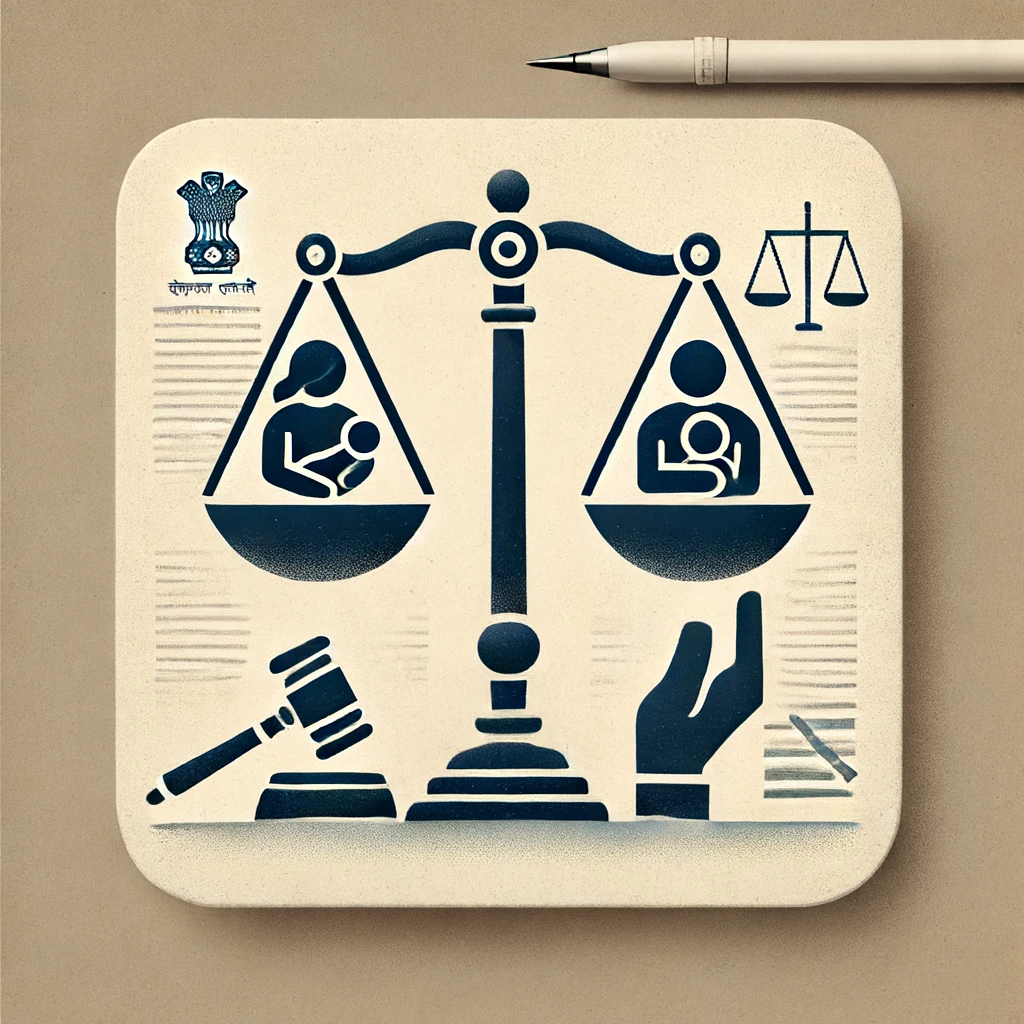In a pivotal judgment that challenged entrenched societal norms, the Supreme Court of India, in the case of Githa Hariharan v. Reserve Bank of India, revisited the interpretation of guardianship under the Hindu Minority and Guardianship Act, 1956. This case became a cornerstone for gender equality in the realm of parental rights, establishing the mother’s equal entitlement to act as the natural guardian of her child. Before this judgment, the legal framework implicitly favored the father as the primary guardian, sidelining the mother’s role in guardianship matters. The Supreme Court’s decision underscored the significance of the child’s welfare and the need for laws to evolve in tandem with changes in societal attitudes toward gender roles. Through this landmark ruling, the court not only empowered mothers but also set a precedent for interpreting legal provisions through the lens of equality and non-discrimination.

Facts
Petitioner’s Background
Githa Hariharan, married to Dr. Mohan Ram, found herself in a custody battle over their son, Rishab Bailey. This case underscores the complexities surrounding guardianship laws and the evolving nature of parental roles within Indian society, setting the stage for a landmark legal challenge.
Maintenance and Financial Security
To secure financial stability for her son, Ms. Hariharan attempted to purchase RBI 9% relief bonds, naming herself as Rishab’s guardian. This move, though financially prudent, revealed the legal hurdles faced by mothers under the current guardianship framework, prompting a significant legal challenge.
Legal Challenge
The rejection of Hariharan’s application by the RBI due to the existing guardianship act led to a writ petition challenging the constitutionality of Section 6(a) under Articles 14 and 15. This legal move highlights the clash between dated legal provisions and contemporary constitutional values.
Dr. Mohan’s Position
Dr. Mohan Ram’s stance, asserting natural guardianship rights over Rishab, typifies the legal contention surrounding guardianship. His claims, rooted in traditional legal interpretations, contrast sharply with the evolving perceptions of parental roles and responsibilities.
Issue Involved: Constitutional Violation
The heart of this legal dispute lies in whether Section 6(a) of the Hindu Minority and Guardianship Act infringes upon the equality rights enshrined in Articles 14 and 15 of the Indian Constitution. This question probes the balance between statutory law and constitutional mandates, challenging entrenched legal norms.
Observation
Supreme Court’s Interpretation
The Supreme Court’s expansive reading of the term “after” in Section 6(a) demonstrates a progressive approach to statutory interpretation, aligning legal principles with contemporary societal values and ensuring that gender does not dictate guardianship capabilities.
Child’s Welfare Paramount
The court’s decision to prioritize the child’s welfare over traditional guardianship norms underscores a significant shift towards child-centric legal reasoning, emphasizing that the best interest of the child supersedes rigid statutory interpretations.
Directions to RBI and District Court
The directives issued to the RBI and the District Court reflect the court’s intent to realign legal procedures and custody considerations with its broader interpretation of guardianship, ensuring that child welfare remains at the forefront of legal determinations.

Observations
The Supreme Court’s decision in the case of Githa Hariharan v. Reserve Bank of India is a significant step towards redefining the contours of guardianship laws in India, reflecting a progressive shift in the judicial understanding of parental roles. The key observations made by the Court delve deep into the constitutional ethos of gender equality, challenging the archaic notion that fathers should be given precedence over mothers in matters of guardianship. By interpreting the term “after” in a broad sense, the Court has opened doors for mothers to assert their rights as natural guardians during the father’s lifetime, especially in scenarios where the father’s involvement in the child’s life is negligible or detrimental. This interpretation prioritizes the child’s welfare as the paramount consideration, moving beyond the gendered stereotypes that have long influenced legal and societal norms.
The observations made in this case serve as a vital lesson for judiciary aspirants, emphasizing the importance of aligning legal practices with the principles of equality and justice. As future leaders of the nation, they must understand the dynamic nature of law and its ability to transform societal norms. This case not only highlights the judiciary’s role in interpreting laws in light of contemporary values but also underscores the importance of ensuring that the legal system remains responsive to the needs and rights of all individuals, irrespective of gender. Through such landmark judgments, aspirants are reminded of the powerful impact that progressive legal reasoning can have on improving the system and society at large, paving the way for a more equitable and just nation.
Conclusion
The landmark judgment in the Githa Hariharan v. Reserve Bank of India case revolutionized the interpretation of Section 6(a) of the Hindu Minority and Guardianship Act, 1956, emphasizing that natural guardianship should be determined based on the capability and genuine interest of the parent in the child’s welfare, rather than gender. This decision reaffirms the principle of equality enshrined in the Constitution and underscores the shared responsibility of both parents in nurturing and safeguarding their children.

